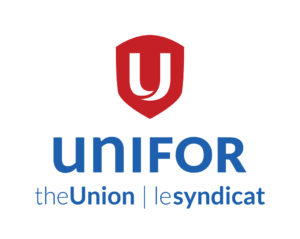
Paycheque to Paycheque: Coping with Income Volatility as Work Changes
Brave New Work Bloggig work and living on the margins
Policymakers are keen to reduce precarity in work. As social, economic, policy, environmental, and technological trends usher changes in the nature of work, income volatility could become more of a problem. We continued our consultations with young and emerging policymakers from the Vancouver Chapter of the Banff Forum and RADIUS SFU to explore what everyday income volatility and precarity looks like for Vancouver workers.
Alex McKeen, work and wealth reporter for The Vancouver Star, told the story of “contract flipping”, a business practice that created precarious work conditions for janitors at a BC Hydro building. Contract flipping occurs when organizations that outsource work, often cleaning or other low-wage tasks, switch sub-contractors for more competitive agreements at the expense of workers. Every time a subcontractor changes, workers have to reapply to do the same job and lose accumulated benefits or wage increases. Practices like these mean opportunities for upward mobility disappear and job security has little to do with performance, tenure, or job-specific knowledge. Contingent and outsourced workers tend to have little job security or bargaining power, limited or no benefits, and low wages. It’s an open question as to what form unions or other forms of representation for workers’ interests could take in the future – and what relationship they’ll have with government and employment laws – as gig work, employment arrangements, and the drivers of precarity change.
Kiri Bird, Acting Director for RADIUS SFU, illustrated what it means to be precariously employed in Vancouver’s Downtown Eastside. Through their Local Economic Development Lab they’ve seen marginalized workers experience significant hardships. These workers also exhibit ingenuity, resourcefulness, and adaptation skills. As policymakers look to make the future of work inclusive, learning from the margins is a fitting place to start.
Read Alex McKeen’s story about BC Hydro janitors who pushed for better job protection – and won.
What to Remember about GIG Work
- Labour force engagement and work are both spectrums. “Work” includes economic activity that isn’t institutionally recognized, such as informal self-employment, nascent entrepreneurship, and social enterprising.
- Gig work does not have to be precarious. Policy interventions can make a difference in improving working conditions, setting standards, and making the systems around work effective for employers and workers.
- Precarity isn’t just about work. Basic necessities, including safe housing and healthcare, directly affect people’s ability to work. Successful policy innovations can have a wide and meaningful impact on accessibility, services and more.
- The social safety net intersects with job type. Many workers use gig work because social assistance does not meet their needs. An income supplement doesn’t comprise a living income, and gig jobs don’t necessarily provide the wages, number of hours or benefits to provide stability.
- Changes in work are creating gaps. Policymakers will need to assess where programs aren’t working as a result of new business practices and other drivers of change.
- Learn from the margins. As work changes, lessons in resilience and adaptation can be found with traditionally marginalized workers.
- Understand and compensate for power differentials. The ability to negotiate better terms and conditions has gone down for individuals, with the rise of outsourcing and the growth of gig work. Workers need to know and feel that they have agency in the workplace.
Income volatility occurs when people experience inconsistent, unstable or fluctuating month-to-month income.
One in three Canadians say they regularly experience income volatility and do not feel confident about their job security.
Policy Options
Participants developed priorities for policymakers to help address the volatility of gig work:
1. Make the tax and benefits system more accessible for everyone |
2. Increase representation for non-standard workers |
3. Create more flexible health supports |
Participants highlighted the following solutions:
|
Participants supported new forms of representation and unionization.
They also suggested updating worker protections, like:
|
Participants laid out a road-map for success:
|
4. Spread out pay and smooth volatility |
5. Develop education and skills training options for people with non-linear careers |
6. Question standard employment as the default metric in policy |
Participants recommended supports for workers with irregular income schedules, including:
|
Participants suggested education and skills training be available to workers who are prone to entering and exiting the labour market more.
They also recommended new approaches to skills training, including:
|
Participants suggested the following steps:
|
The views expressed in the research papers, articles and reports reflect those of our authors and do not necessarily reflect those of our sponsors and partners.
What’s Next?
The Public Policy Forum is continuing to engage Banff Forum members across the country on key issues facing our country as the world of work is changing. We’ve been in Toronto, Edmonton and Vancouver – and Montréal is next. These are great opportunities for us to engage widely, convene practical policy conversations and generate fresh ideas through our Inclusion to Conclusion approach.
Stay tuned! Keep up to date on our latest news and events by signing up for the Brave New Work Newsletter.
For further information on the Brave New Work project, please contact Amy Davis.
Thank you to our lead sponsor:
 |
Thank you to our partners:
 |
 |
 |
 |
 |
 |
 |
 |
Thank you to our project partners:
|
|
Thanks to our event host:
 |






